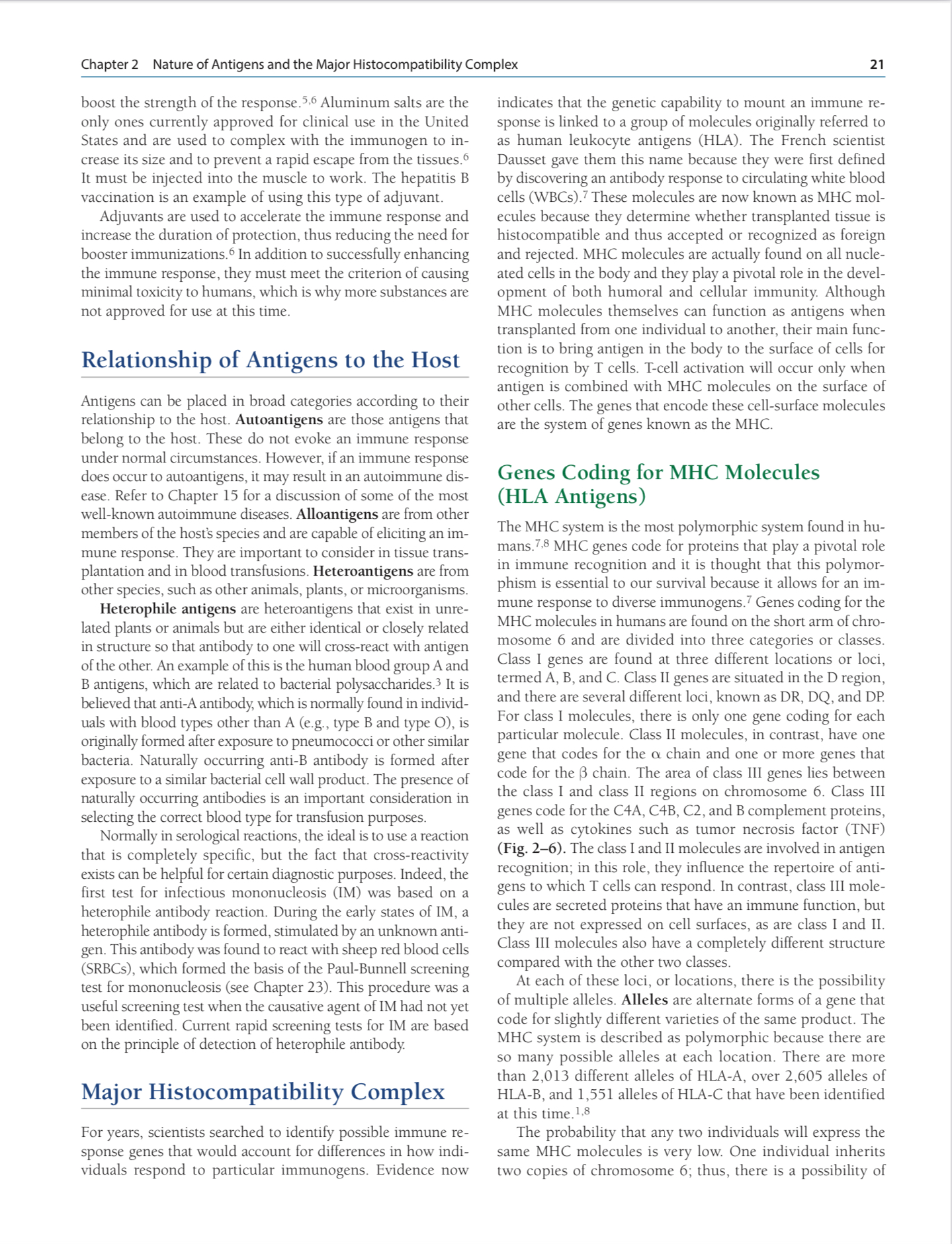What are the relationships of antigens to the host and the function of MHC molecules in the immune response?

Understand the Problem
The question is seeking clarification on concepts related to the immune response and the role of antigens and major histocompatibility complex (MHC) molecules in immune function. The response will focus on relationship categories of antigens, types of immunity, and MHC classifications.
Answer
Antigens relate to the host as autoantigens, alloantigens, or heteroantigens. MHC molecules present these antigens to T cells for immune response.
Antigens can be categorized as autoantigens, alloantigens, or heteroantigens based on their relationship to the host. MHC molecules present these antigens to T cells, facilitating the distinction between self and nonself.
Answer for screen readers
Antigens can be categorized as autoantigens, alloantigens, or heteroantigens based on their relationship to the host. MHC molecules present these antigens to T cells, facilitating the distinction between self and nonself.
More Information
Antigens play different roles depending on their origin, and the polygenic nature of MHC molecules enhances the ability of the immune system to recognize and respond to a wide range of pathogens.
Tips
Common mistakes include confusing the functions of MHC Class I and II molecules and misunderstanding the categories of antigens and their relevance to the host.
Sources
- The major histocompatibility complex and its functions - NCBI - ncbi.nlm.nih.gov
- Major histocompatibility complex (MHC) - Britannica - britannica.com
- 4. MHC antigen presentation - Immunopaedia - immunopaedia.org.za